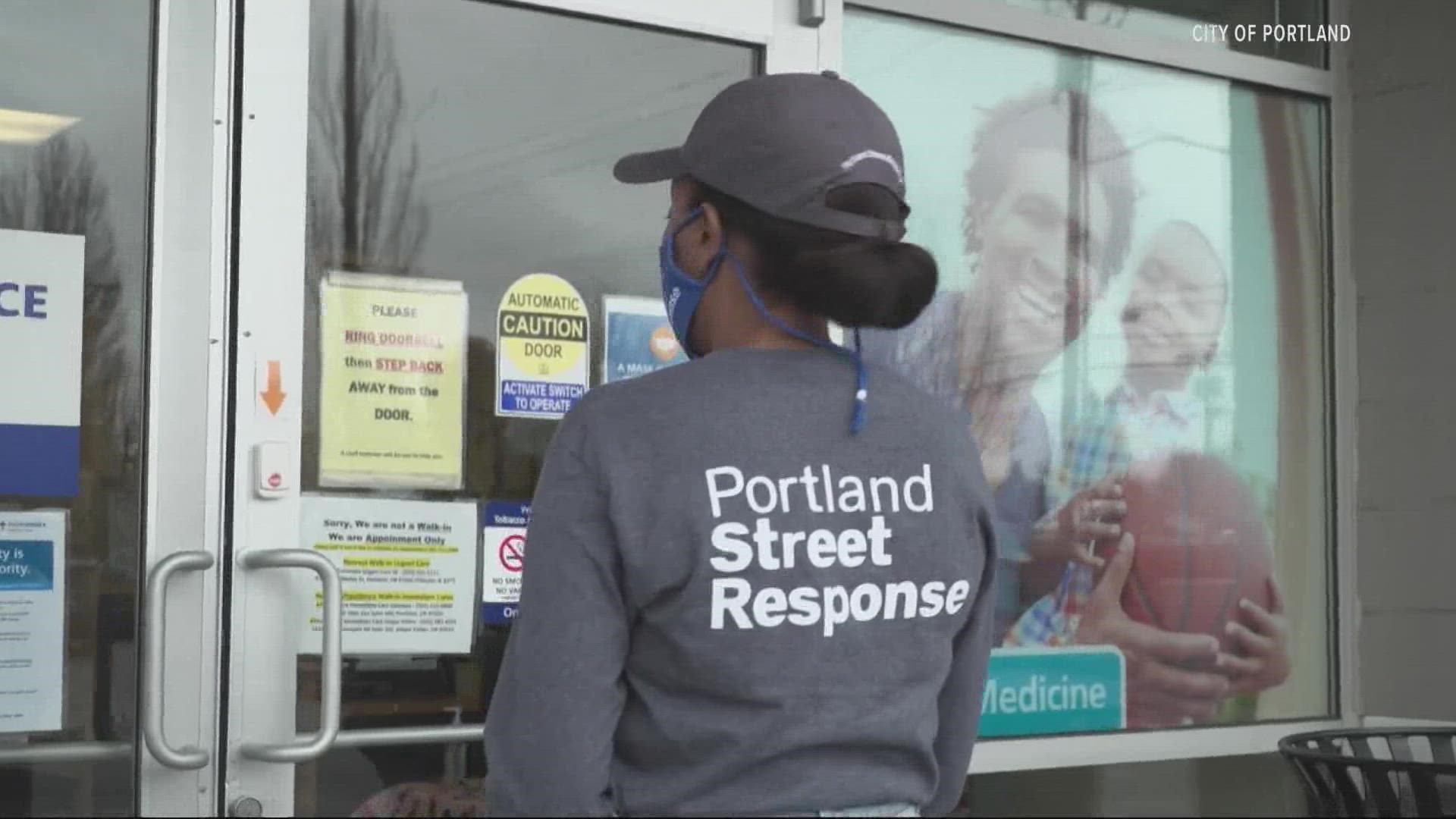PORTLAND, Ore. — Portland Street Response’s (PSR) second team will begin taking calls into the evening and early mornings and will begin serving more Portlanders with a new boundary almost three times the size of the old.
PSR is a pilot program modeled after a similar program in Eugene called CAHOOTS. It responds to houseless individuals in need or “low-acuity behavioral health issues,” according to its website. It consists of paramedics and mental health experts who respond to non-violent situations to provide mental health services, drug counseling and housing needs.
This expansion to PSR will begin taking calls on the eastside from 6 p.m.-2:30 a.m. on Nov. 4. It will operate Thursday through Sunday with a Firefighter/EMT, a Mental Health Crisis Responder, and two Peer Support Specialists.
"This evening shift will tell us if we should expect more calls in the evening and if the nature of the call types we respond to will be any different than the ones during the day," said Robyn Burek, program director for PSR. "It will help us understand the right team makeup as well as the potential scale of what this could look like as a 24-7 citywide launch."
The day shift has also changed its hours to 9 a.m.-5 p.m. Monday-Thursday. The expanded boundary for call response went from 13 square miles to 36. Portlanders can input their address into this tool to see if their address is covered.
“This next phase of Portland Street Response’s expansion is part of Portland Fire & Rescue’s commitment to health equity and a bureau-wide vision for creating a community where all of our neighbors are able to access the mental, behavioral health, and social service supports they need to live healthy, productive lives,” said PF&R’s Fire Chief Sara Boone.
PSR has come under fire since its inception for having its hands tied in terms of what calls it can take. For PSR to respond, someone must be, among other things, experiencing a mental health crisis.
Frustrations with PSR came to a head with the fatal police killing of Robert Delgado in April. Delgado was experiencing a mental health crisis in Lents Park. He was homeless and reported to be long-afraid of Police. PSR could not respond to that call because Delgado was said to be armed at the time; it was later found he had a replica gun. That incident coupled with a report from Willamette Week in April that PSR had only taken about two calls a day frustrated the public. At the time, staff told a Willamette Week reporter that they could handle four to five times that number.
In October, the types of calls PSR could respond to were expanded to cover suicide calls.
"We look forward to continuing to meet with members of the Street Response Team and collaborate on how we can best coordinate and align our resources to serve those most vulnerable and get them the help they need," said Portland Police Bureau Chief Chuck Lovell. "Our Behavioral Health Team has worked to supply training, provide support and assist the efforts of the Street Response Team as they begin their expansion. This is a valuable public safety partnership."
Portland City Commissioner Jo Ann Hardesty, who oversees PSR, told KGW in October that she would introduce a $1 million expansion package for the program during the city’s regular fall adjustment process and would ask the council to commit to a citywide expansion in March 2022.
Of the new night team, she said in a release, “I’m so excited that today we are ready to expand Portland Street Response to a larger portion of Portland’s eastside with a new shift coming onboard. This is the next step towards Citywide expansion as we continue to thoughtfully grow PSR to provide a compassionate first response to people in crisis on our streets, which will also free up resources for our police. I want to thank the Lents neighborhood for being an incredible partner throughout this pilot and Portlanders throughout the city who have continued to express strong support for growing Portland Street Response.”
Requests for PST service can be made by calling 9-1-1.

